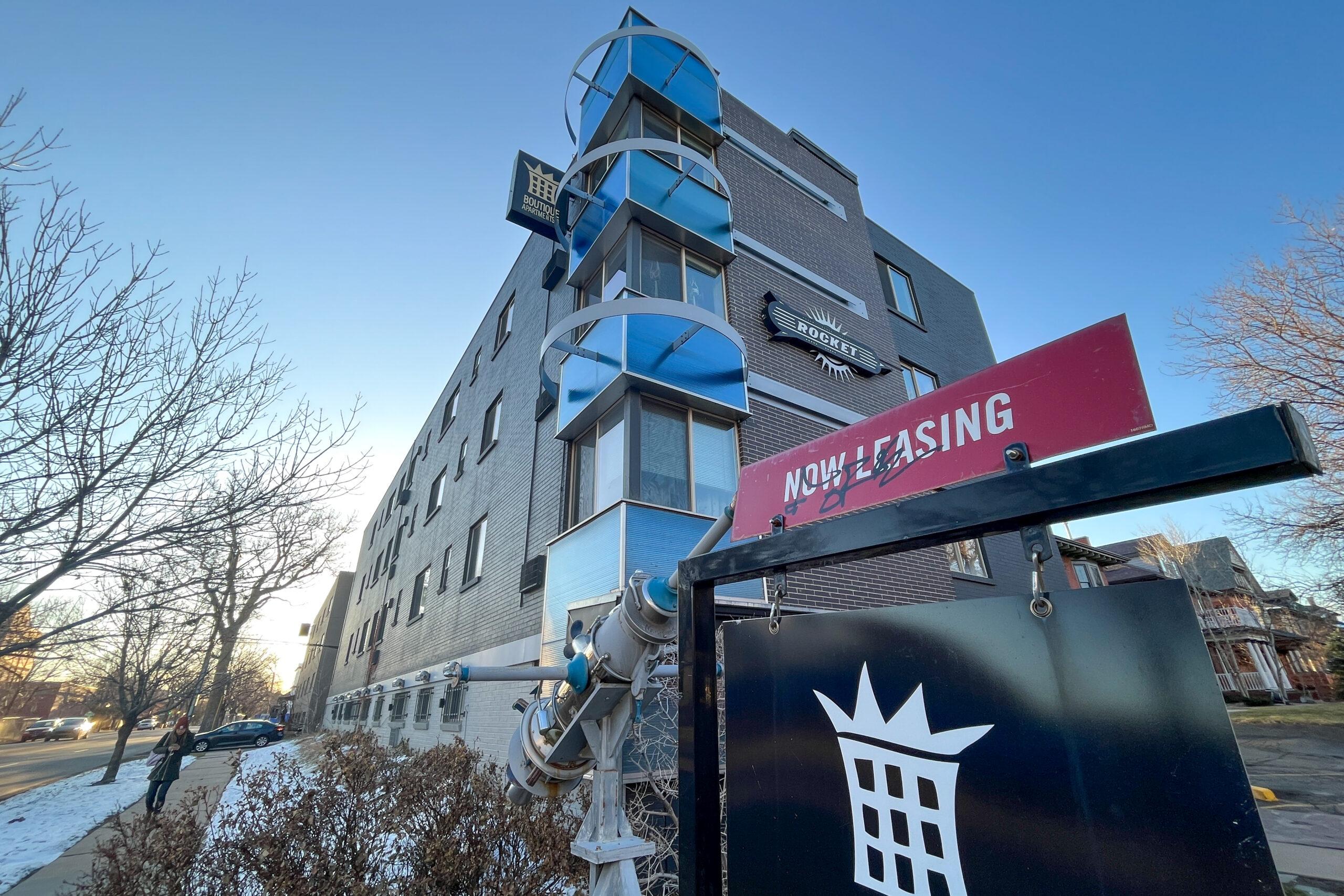
A proposal to make evictions more difficult and give tenants greater leverage has failed in the state legislature.
The measure had passed the House and won support at a Senate committee on Thursday, but ultimately ran out of time. The full Senate failed to take a preliminary vote on the measure before the end of Sunday night, which means it can’t complete the remaining steps before the legislature’s midnight deadline Monday.
State Rep. Javier Mabrey, a Democratic sponsor, said it was another example of a failure to support policies for renters.
“It wasn't a priority. And honestly, that kind of fits in line with where we've been this legislative session,” Mabrey said. “I think that there are individual members, and a critical mass of people in our caucus, that do want to make sure renters are prioritized as part of the conversation around affordable housing,” he added.
Progressive Democrats held out hope for weeks that it would be their marquee victory for tenants' rights, especially after a local rent control bill was voted down earlier in the session.
The eviction bill had held on the Senate calendar for several days. But as the hours ticked down on Sunday night, the chamber instead debated proposed Democratic changes to the state’s tax structure, with Republicans holding the floor for hours.
Democratic state Sen. Julie Gonzales, another cosponsor of the bill, said that there was enough support in the Senate to pass the measure — but she didn’t comment further on why it wasn’t brought up for a vote in time.
“I trust my leadership,” she said, referring to the Democratic leaders of the chamber.
Senate President Steve Fenberg said the policy idea itself had gained support, but didn’t have enough votes to pass in its current form.
“I think there's actually a policy path. I think we probably found it but there wasn't enough time to hammer it out,” he said.
What would the bill have done?
The bill would change what happens when a lease ends. Currently, landlords can often force out unwanted tenants by simply refusing to renew their leases. Landlords use that option to get rid of tenants who complain about poor conditions, advocates argued.
“Do I keep raising issues, knowing I could be evicted when my lease is up?” asked Mariah Garcia, who described dealing with broken heat at a rental home, during recent committee testimony.
Under the just cause bill, a landlord would need a specific reason to force a tenant out, even if they are on a month-to-month lease. The bill would still have allowed landlords to evict people who commit “substantial” violations of the lease, including failure to pay rent or refusing to let a landlord into the property.
The original bill would also have created a form of rent regulation, critics argued, because it gave renters leverage to continue their leases with only a “reasonably increased” amount of rent. But that concept was removed from the bill in an amendment on Thursday night, replaced with a ban on extreme “retaliatory” hikes.
The bill was also amended to remove a requirement that landlords pay moving costs for tenants in some cases, and it gave landlords more flexibility to change lease conditions when they expire.
Landlords and real estate industry representatives argued that the law would add more bureaucracy and costs, make it harder to deal with problem tenants and lock in lease terms indefinitely.
“This bill is simply too radical of a change in Colorado,” said Pete Muccio, an attorney with the evictions law firm Tschetter Selzer.
He pointed out that existing laws already forbid landlords from refusing to renew for a variety of reasons, including as retaliation for making maintenance requests or as an act of discrimination against protected classes. Advocates for the bill argue that it’s difficult and expensive to prove those kinds of violations in court.
Five other states have similar "just cause" or "good cause" eviction laws, including New Jersey, California, New Hampshire, Oregon, Washington, according to the National Low Income Housing Coalition, though their policies differ in the details.
Gonzales and Mabrey both said they planned to keep working on the idea.









